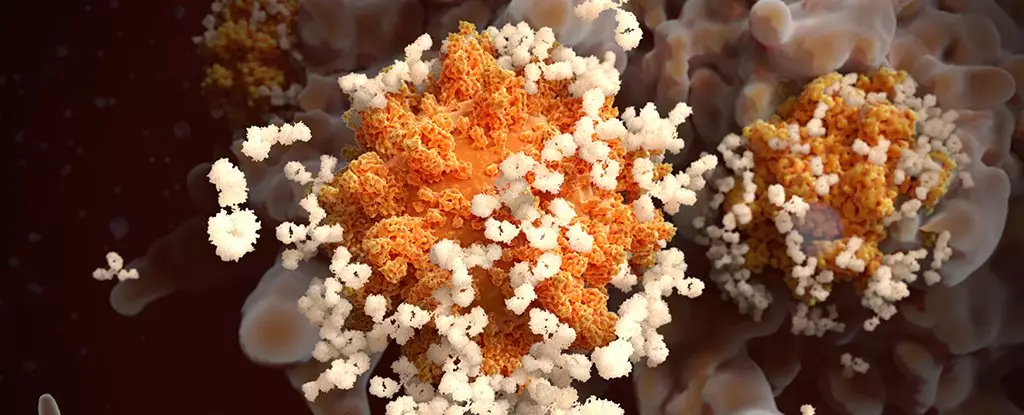Days after a SARS-CoV-2 infection, an otherwise healthy teenage girl suddenly had trouble breathing. COVID-19 appeared to have paralyzed her vocal cords. The girl needed a surgical tracheostomy – an opening in her windpipe below her voice box – to support her breathing for over a year. According to a new case report on the event, COVID’s impact on the nervous system may cause vocal cord paralysis in rare cases. The authors say this is the first case of vocal cord paralysis in a teenager after a COVID-19 diagnosis, though there have been reports of the condition in adults.
“The virus has known neurologic complications, including headache, seizure, and peripheral neuropathy,” write otolaryngologists Danielle Larrow and Christopher Hartnick from Mass Eye and Ear at Harvard Medical School. “The current case reveals that vocal cord paralysis may be an additional neuropathic sequela of the virus.”
Thirteen days after a positive SARS-CoV-2 test, the 15-year-old girl presented to a hospital emergency department. Her initial symptoms included congestion, fever, and fatigue, which improved after five days. However, nine days after the positive test, she reported sudden trouble breathing, especially when active. Emergency department doctors noted her breathing was rapid and noisy when inhaling, implying obstructed airflow, although her oxygen levels remained normal. Tests for SARS-CoV-2 and other respiratory infections yielded negative results.
The patient, who had a history of asthma and anxiety, was initially given steroids and bronchodilators for a suspected asthma attack, but these interventions failed to provide relief. Otolaryngologists examined her vocal cords and initially diagnosed paradoxical vocal fold motion (PVFM), a condition where the vocal cords close instead of opening while a person inhales. Speech therapy was initiated to address this involuntary closure, but her symptoms did not improve, and it became evident that they did not align with the typical signs of PVFM.
As her breathing difficulties persisted, the girl developed new problems like difficulty swallowing, weakness on one side, tingling and numbness, and unsteady walking. Consequently, she was admitted to a pediatric hospital for a thorough evaluation. Otolaryngologists examined her vocal cords again and determined she had bilateral vocal cord paralysis, meaning that both of her vocal cords were unable to move. However, a definitive cause for the paralysis remained elusive despite numerous tests ruling out infections and neurological disorders.
Her brain and spine scans showed no apparent issues that could explain her symptoms, and swallowing tests also yielded no abnormal findings. Based on these findings, doctors concluded that the teenager’s previous COVID-19 infection appeared to have weakened her vocal cords and might similarly account for her numbness and weakness on one side.
In an attempt to alleviate her breathing issues, the medical team administered botulinum toxin injections into her throat muscles. This method has proven effective in treating certain throat pathologies in children, but it failed to produce the desired results for the girl. Ultimately, she underwent tracheostomy surgery, which involved creating a small opening in her windpipe to facilitate breathing. Thankfully, her breathing improved after the procedure.
Over time, the girl’s weakness, tingling, and numbness gradually improved, reinforcing the likelihood that these symptoms were indeed linked to her previous COVID-19 infection. The medical team periodically attempted to assess if she could breathe without the tracheostomy, and it was only after 15 months that they deemed it safe to remove it. The determination and resilience of the patient were evident, as she expressed her desire to attend her senior prom without the tracheostomy.
This unique case sheds light on the potential neurologic complications of COVID-19, including vocal cord paralysis, even in teenagers. The study underscores the importance of thorough evaluation and examination when patients present with atypical symptoms. As we continue to navigate the effects of the pandemic, further research and understanding of the virus’s impact on the nervous system are crucial in providing timely and appropriate care to patients who may experience rare complications.



Leave a Reply